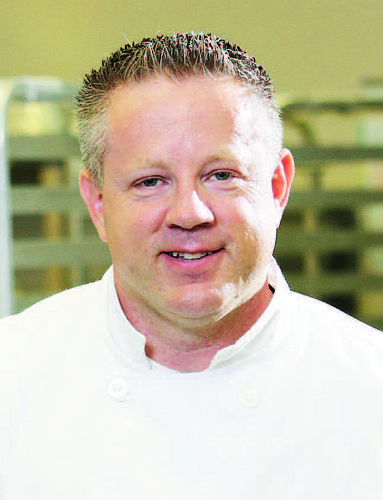- November 22, 2024
-
-
Loading

Loading

Old habits die hard.
It’s a cliche, but for Doctor’s Hospital Director of Food and Nutrition Services Paul Evans it presents a real challenges.
“It’s hard to change what we eat,” Evans said. “Especially seniors because they are probably the population most reluctant to change. They have eaten that way 50 or 60 years.”
Evan’s largest demographic at Doctor’s Hospital is between 60 and 74 years old. He said there are a many hurdles to adjusting your diet as we age, but, in many ways, it boils down to taste.
“The aging population has a tendency to start losing some of our taste buds,” Evans said. “They get really sensitive to salt and seem to require a lot more sugar. That’s more satisfying to them. You see patients gravitating towards deserts, and gravitating towards sweet drinks and sweet fruits as a satisfier for them based upon how their taste buds have changed.”
Although the problem is derivative of age, the solution, Evans said, is timeless.
“Definitely moderation,” he said. “Try to monitor what you intake either from strictly a caloric intake or set meal plans.”
Evans said people’s strategies to that end may be different based on medication, metabolism and dietary restrictions, but the basics are the same.
“I encourage everyone to stay away from the processed stuff as much they can,” he said. “It’s hard to avoid all of it, especially as a senior.”
Some may prefer a heart healthy or low carbohydrate approach, but for some seniors, the important thing is just to eat.
Evans said on one end of the nutrition spectrum, there are seniors over indulging in sweets and processed snacks. On the other end, Evans said, there are those simply struggling to eat.
“We have a huge issue, and I think every hospital, especially in Florida, does, with malnutrition in seniors,” he said. “A lot of it is they don’t feel good. So they don’t eat. Maybe they are not as ambulatory as they used to be so they can’t get up and make food. Maybe their caregiver at that point is less ambulatory and can’t feed them what they should be eating. It’s a huge issue.”
About 6% of seniors entering the Emergency Room at Doctor’s Hospital can be diagnosed with malnutrition, but in some cases throughout Florida that number can be as high as 40%.
When it comes to malnutrition, Evans said specialty diets are less of a priority.
“If they’re on heart healthy and they want a cheeseburger and they’re not eating anything else, give them a cheese burger,” Evans said. “It’s better to eat something than nothing at that point.”
Maintaining a healthy caloric intake becomes particularly important for those struggling to recover from an illness.
“Food is medicine,” Evans said. “If you’re not eating you’re not going to get well.”
Regardless if patients are trying to increase or decrease their caloric intake, Evans said eating smaller meals around 300 calories more frequently can improve blood sugar and can improve energy levels and sleep cycles.
“It could be a three ounce chicken breast, a scoop of rice and some fresh vegetables,” he said. “That can encompass a meal. Oatmeal and eggs in the morning — it doesn’t have to be difficult stuff.”
He said when it comes to making big adjustments, the key is making those changes incrementally. Start small, manage your expectations and find an ally to keep you accountable.
While nutrition is imperative to healthy aging, he said the bedrock of a healthy diet isn’t complicated.
“Just simple, natural good foods,” Evans said.
For those wanting more guidance on nutrition, the U.S. Department of Agriculture's nutrition.gov website offers a wide range of studies and tips to help you make informed decisions.
"Eating healthy is a journey shaped by many factors, including our stage of life, situations, preferences, access to food, culture, traditions and the personal decisions we make over time," the USDA says on the site. "All your food and beverage choices count."